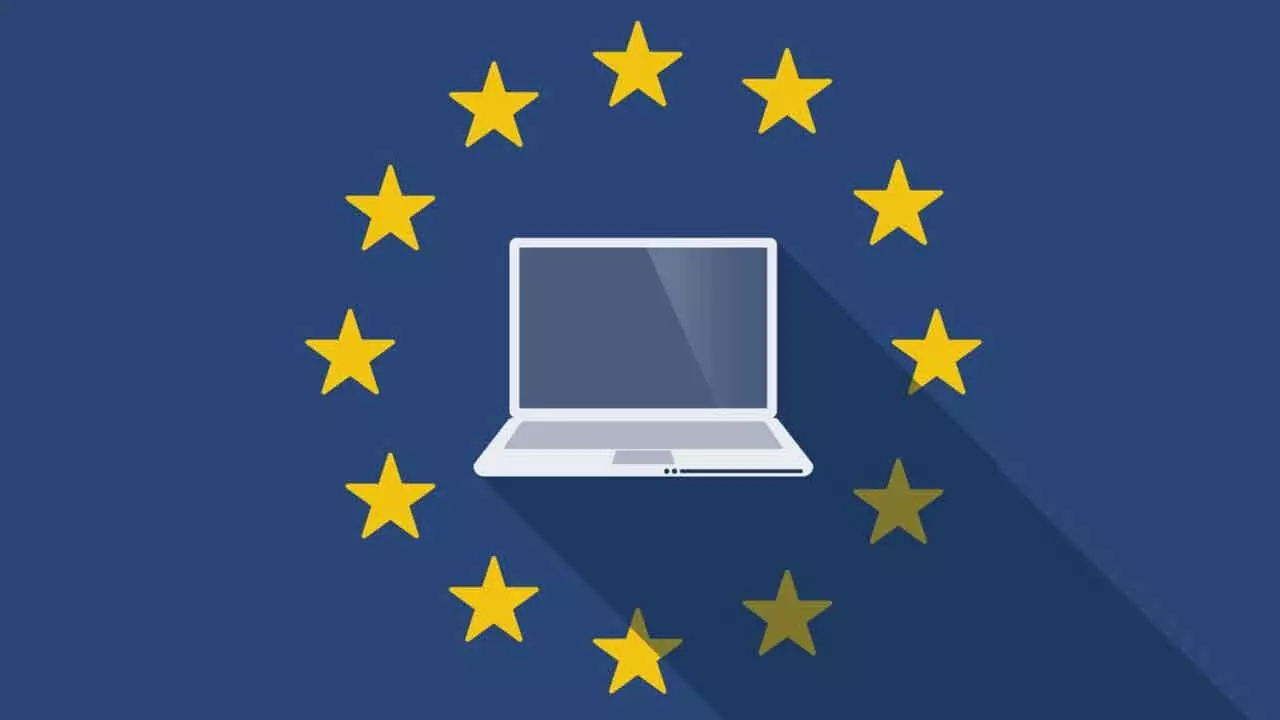Trump's Tech Tactic: Why Europe's Digital Sovereignty Drive Spells Trouble for Microsoft, Google, and Apple
European governments are accelerating efforts to reduce reliance on US tech giants like Microsoft, Google, and Apple following a controversial Trump executive order. Discover how this push for digital sovereignty is reshaping the European tech landscape.
Trump's Tech Tactic: Why Europe's Digital Sovereignty Drive Spells Trouble for Microsoft, Google, and Apple

A seismic shift is underway in Europe's relationship with American technology giants. What was once a reliance born of convenience has rapidly transformed into a deep-seated fear, largely ignited by an incident involving the International Criminal Court (ICC) and a controversial executive order from U.S. President Donald Trump. This escalating apprehension among European governments and institutions is now accelerating efforts to build their own digital infrastructure, a move that could significantly impact the market dominance of companies like Microsoft, Google, and Apple.
The turning point came in February 2025, when President Trump leveraged executive powers to compel Microsoft to suspend the email account of Karim Khan, an ICC prosecutor investigating Israel for alleged war crimes. Microsoft's swift compliance sent shockwaves across Europe, laying bare the potential for American tech dominance to be weaponized even against allied nations. For European policymakers, who have long harbored concerns about digital sovereignty, this incident served as an undeniable "watershed moment."
"The I.C.C. showed this can happen," Bart Groothuis, a Dutch cybersecurity expert and member of the European Parliament, told the New York Times. Groothuis, who previously championed U.S. tech firms, admitted to a "180-degree flip-flop," now firmly believing that Europe must take decisive steps toward greater technological independence. This sentiment encapsulates the evolving European perspective: from trusting partners to potential vulnerabilities.
European Institutions Scramble for Alternatives
The ICC incident has had immediate and tangible consequences. Some ICC officials have already migrated to Proton, a Swiss-based encrypted email provider, seeking more secure and independently controlled communication channels. Furthermore, sources familiar with the court's communications reveal that the ICC has implemented extensive measures to ensure operational continuity despite ongoing U.S. sanctions.
This move underscores a critical vulnerability for Europe: American tech companies currently command over 70 percent of the region's cloud computing market. This heavy reliance on services from Amazon, Google, and Microsoft for fundamental digital infrastructure – including data storage, retrieval, and software operations – has made Europe acutely aware of its exposure.
Tech Giants Offer Reassurances, But Damage Persists
In response to the growing unease, major American tech players have attempted to mend fences. Microsoft President Brad Smith candidly acknowledged that the ICC episode was a "symptom" of eroding trust between the U.S. and Europe, admitting that "the I.C.C. issue added fuel to a fire that was already burning." The company has since adapted its policies to offer enhanced protection to customers in similar geopolitical situations, demonstrated by the fact that when Trump sanctioned four more ICC judges this month, their email accounts remained active.
Microsoft CEO Satya Nadella recently visited the Netherlands to unveil new "sovereign solutions" for European institutions, promising enhanced legal and data security protections. Amazon and Google have followed suit, launching similar initiatives aimed at assuaging European customers' fears about geopolitical volatility.
European Governments Pivot Towards Digital Independence
Despite these corporate reassurances, European nations are not merely relying on promises. Concrete steps are being taken to diversify their digital ecosystems and reduce dependence on American providers. Denmark's digital ministry is actively trialling replacements for Microsoft Office, while Germany's Schleswig-Holstein state is strategically reducing its reliance on Microsoft products. The Netherlands government has elevated digital autonomy to a central priority, actively exploring partnerships with European technology providers.
At a broader level, the European Union has announced significant billion-euro investments in AI data centers and cloud infrastructure, explicitly designed to lessen American tech dominance. European Parliament lawmakers are also actively discussing policies that would prioritize EU-based tech services for government procurement, effectively creating a "buy European" mandate for digital infrastructure.
The impact of this shift is already being felt by European cloud providers. Netherlands-based Intermax Group and Switzerland's Exoscale are reporting substantial increases in new business. As Intermax CEO Ludo Baauw told the Times, reflecting on the past perception of U.S. tech companies: "A few years ago, everyone was saying, 'They're our trusted partners.' There's been a radical change." This "radical change" signifies a new era where Europe is determined to control its own digital destiny, posing a formidable challenge to the long-standing market dominance of American tech giants.

